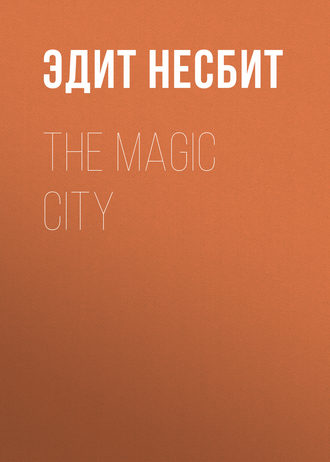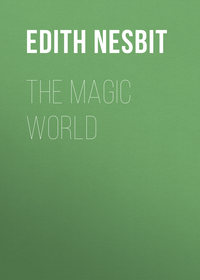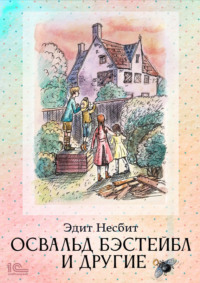 полная версия
полная версияThe Magic City
'Hooray!' said Philip. 'I couldn't bear to think of her rotting away in a cavern.'
'I wish Max and Brenda had come to say good-bye,' said Lucy.
'It is not needed,' said Mr. Noah mysteriously. And then everybody said good-bye again, and Mr. Noah rolled up his yellow mat, put it under his arm again, and went—for ever.
The children built the Grange, and when the beautiful little model of that house was there before them, perfect, they stood still a moment, looking at it.
'I wish we could be two people each,' said Lucy, 'and one of each of us go home and one of each of us stay here. Oh!' she cried suddenly, and snatched at Philip's arm. For a slight strange giddiness had suddenly caught her. Philip too swayed a little uncertainly and stood a moment with his hand to his head. The children gazed about them bewildered and still a little giddy. The room was gone, the model of the Grange was gone. Over their heads was blue sky, under their feet was green grass, and in front stood the Grange itself, with its front door wide open and on the steps Helen and Mr. Peter Graham.
That telegram had brought them home.
You will wonder how Lucy explained where she had been when she was lost. She never did explain. There are some things, as you know, that cannot be explained. But the curious thing is that no one ever asked for an explanation. The grown-ups must have thought they knew all about it, which, of course, was very far from being the truth.
When the four people on the doorstep of the Grange had finished saying how glad they were to see each other—that day on the steps when Philip and Lucy came back from Polistarchia, Helen and Mr. Peter Graham came back from Belgium—Helen said:
'And we've brought you each the loveliest present. Fetch them, Peter, there's a dear.'
Mr. Peter Graham went to the stable-yard and came back followed by two long tan dachshunds, who rushed up to the children frisking and fawning in a way they well knew.
'Why Max! why Brenda!' cried Philip. 'Oh, Helen! are they for us?'
'Yes, dear, of course they are,' said Helen; 'but how did you know their names?'
That was one of the things which Philip could not tell, then.
But he told Helen the whole story later, and she said it was wonderful, and how clever of him to make all that up, and that when he was a man he would be able to be an author and to write books.
'And do you know,' she said, 'I did dream about the island—quite a long dream, only when I woke up I could only remember that I'd been there and seen you. But no doubt I dreamed about Mr. Noah and all the rest of it as well, only I forgot it.'
And Max and Brenda of course loved every one. Their characters were quite unchanged. Only the children had forgotten the language of animals, so that conversation between them and the dogs was for ever impossible. But Max and Brenda understand every word you say—any one can see that.
You want to know what became of the redheaded, steely-eyed nurse, the Pretenderette, who made so much mischief and trouble? Well, I suppose she is still living with the Halma folk, teaching the Great Sloth to like his work and learning to be fond of people—which is the only way to be happy. At any rate no one that I know of has ever seen her again anywhere else.
THE END1
Never mind grammar.
2
This is correct grammar, but never mind.











